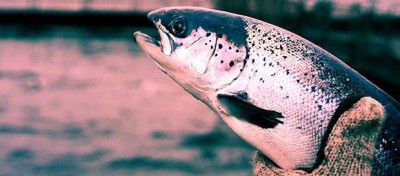FDA Has Approved Genetically Modified (GM) Salmon for Consumption, and It Won’t Be Labeled

The U.S. Food and Drug Administration just approved the sale of genetically modified salmon – the first GM animal allowed on the market.
The FDA says that AquaBounty’s product will not require special labeling because it is nutritionally equivalent to conventional farm-raised Atlantic salmon, though this has not been proven.
It should be no surprise that the parent company of AquaBounty, Intrexon Corp, saw stock shares rise by 7.3% to $37.55 in afternoon trading. Unless we fire everyone in the FDA immediately, and ban all salmon, the company has essentially blackmailed us all into eating GM fish.
This recent approval is an especially-big deal when we consider the possibility that the Deny Americans the Right to Know (DARK) Act could soon go through Congress and strip GMO labeling from all foods completely.
Imagine going through the grocery store and having no idea whether the food you’re buying has been genetically modified. This, despite poll after poll showing that Americans want GMO labeling.
Now that we have proof that industrial agriculture will stop at nothing to force-feed the world chemicals and seed that could ruin human health and the environment, it becomes even more transparent that the FDA is doing the dirty business of regulating a genetically modified world.
GM soy, sugar beets, canola, cotton, and maize have already taken over the millions of acres of arable land, but now we will be forced to eat GM salmon, and it won’t be labeled. So you won’t even know if the fish you are dining on was caught in the ocean, or grown on a GM farm, or a combination of the two, since genetically modified salmon has been gene-edited to grow four times faster than regular salmon, and will be grown without proper measures to keep it from contaminating non-GM salmon through cross-breeding.
Only Alaska requires a label for GM salmon at present, so as GM salmon is shipped to your state, and served up in restaurants, sold in grocery stores, and even grown in local fisheries, you’ll have no way to avoid it – unless of course, you just stop eating salmon.

